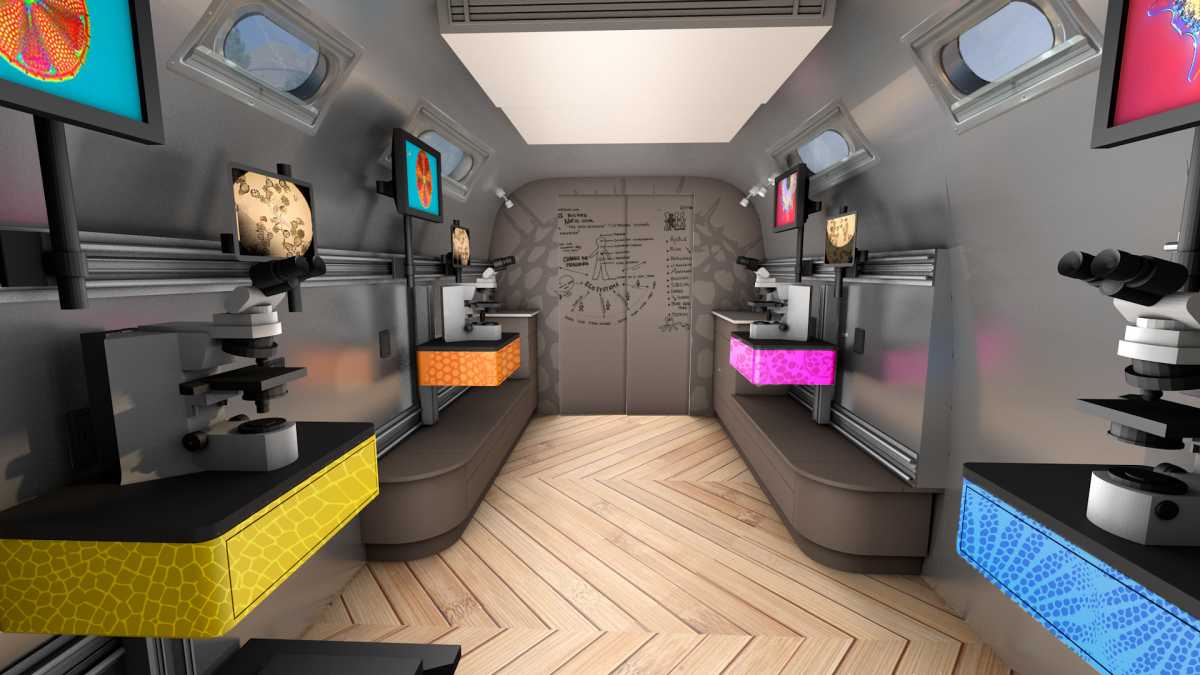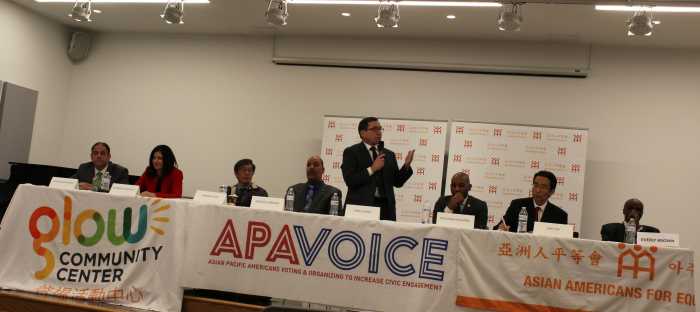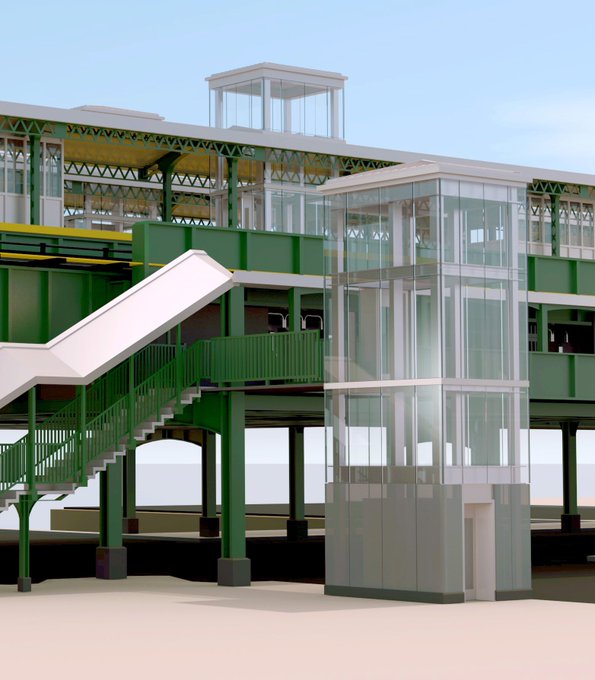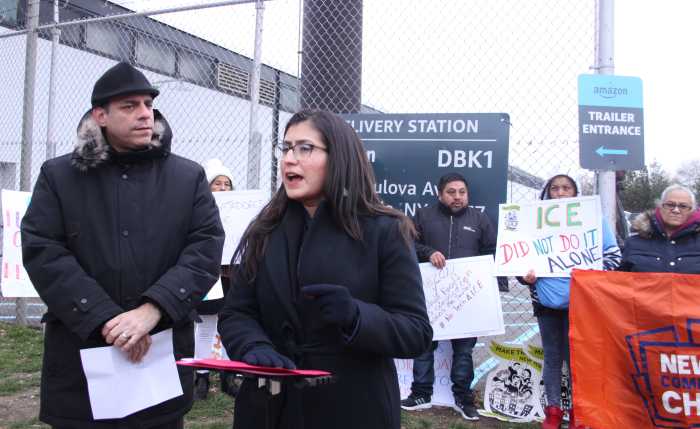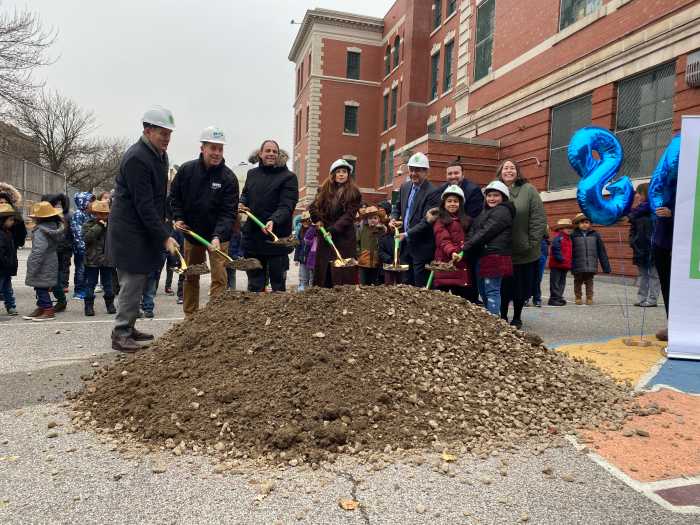Young scientists in Astoria Houses will soon be able to explore their ecosystem with BioBus, a science education nonprofit with a mission to help people cultivate a wonder for science and a deeper understanding of the world around them.
Astoria Councilman Costa Constantinides held a Zoom press conference on Thursday, Sept. 24, to announce the new development, which comes after a yearslong partnership with BioBus and the Astoria Houses.
“BioBus has already been an amazing partner here in western Queens, to introduce more people to the wonders of science,” said Constantinides. “I am so excited we can mark Climate Week by making BioBus a permanent fixture at the Astoria Houses. This will continue the Hallets Point peninsula’s revolution into a leader on sustainability.”
Thanks to a $304,000 allocation secured by Constantinides in the city’s 2021 fiscal budget, BioBus will be able to purchase a new mobile lab for the site.
Community leaders Bishop Mitchell G. Taylor and Astoria Houses Residents Association President Claudia Cogler were also in attendance during the conference, each expressing their delight of the permanent installation.
Ben Dubin-Thaler, the executive director and founder of BioBus, showcased some of the lab features of one of their mobile buses, such as electron microscopes, and its accessibility-friendly design.
The permanent mobile lab at Astoria Houses will become a living classroom, with plans to install a solar array to power it exclusively with renewable energy.
“The mentorship that’s going to be part of this project is critical for us,” said Dubin-Thaler, thanking Constantinides, Bishop Taylor and Cogler for their leadership. “You’re the political leaders, the community leaders that convinced somebody like me, a scientist, to devote my career to inspiring the next generation of scientists, especially young scientists who don’t usually have that opportunity in their communities.”
The new lab is slated to finish construction by the end of 2021.
In the meantime, Dubin-Thaler encourages interested pupils to visit biobus.org for weekly live student town halls, recorded science challenges for students to practice hands-on experiments at home and Discover classes for school groups.

In the last few years, BioBus brought one of its mobile labs to the Astoria Houses and other western Queens neighborhoods, where they’ve offered public events, classes for school groups and after school activities.
Queens native Nicholas Bustamante is a junior scientist at BioBus who’s currently pursuing an engineering degree at Binghamton University. Bustamante spoke about interning at the BioBus program after his school counselor at Bayside’s Benjamin N. Cardozo High School provided him with their information.
“I never expected science to be as engaging as BioBus made it to be,” said Bustamante. “When you’re a high school student, even through college, I thought my experience would change. Science is very linear when it comes to college — there’s not much room to improve, you learn the basics, but you don’t really get to explore why things are the way they are — but through BioBus, it really helps you understand the topic and really fall in love with how microscopes work and how the science behind how everything really functions in our lives.”
He said that access to a program like BioBus in someone’s own neighborhood can make all the difference, and “gives them no excuse to not chase their dreams.”
Constantinides and the community leaders are hopeful this will encourage young people in underserved communities to pursue a career in the science field.
“Last summer, we had the BioBus parked out in front of the Astoria Houses. Kids came into the bus and got to see some of the ecosystems in the East River in Hallets Cove, and it was amazing to see that wonder on their faces, the curiosity about the natural world, their desire to learn more,” said Constantinides. “That’s the spark that this is all about — creating that spark, that love of science. Because we don’t know always know what we want to be when we grow up. I’m still trying to figure it out at 45. And for young people, it’s giving them that possibility to say, ‘Oh, I want to do that. That looks fascinating. I want to learn more. Maybe that’s what I’m going to do with my life.'”

